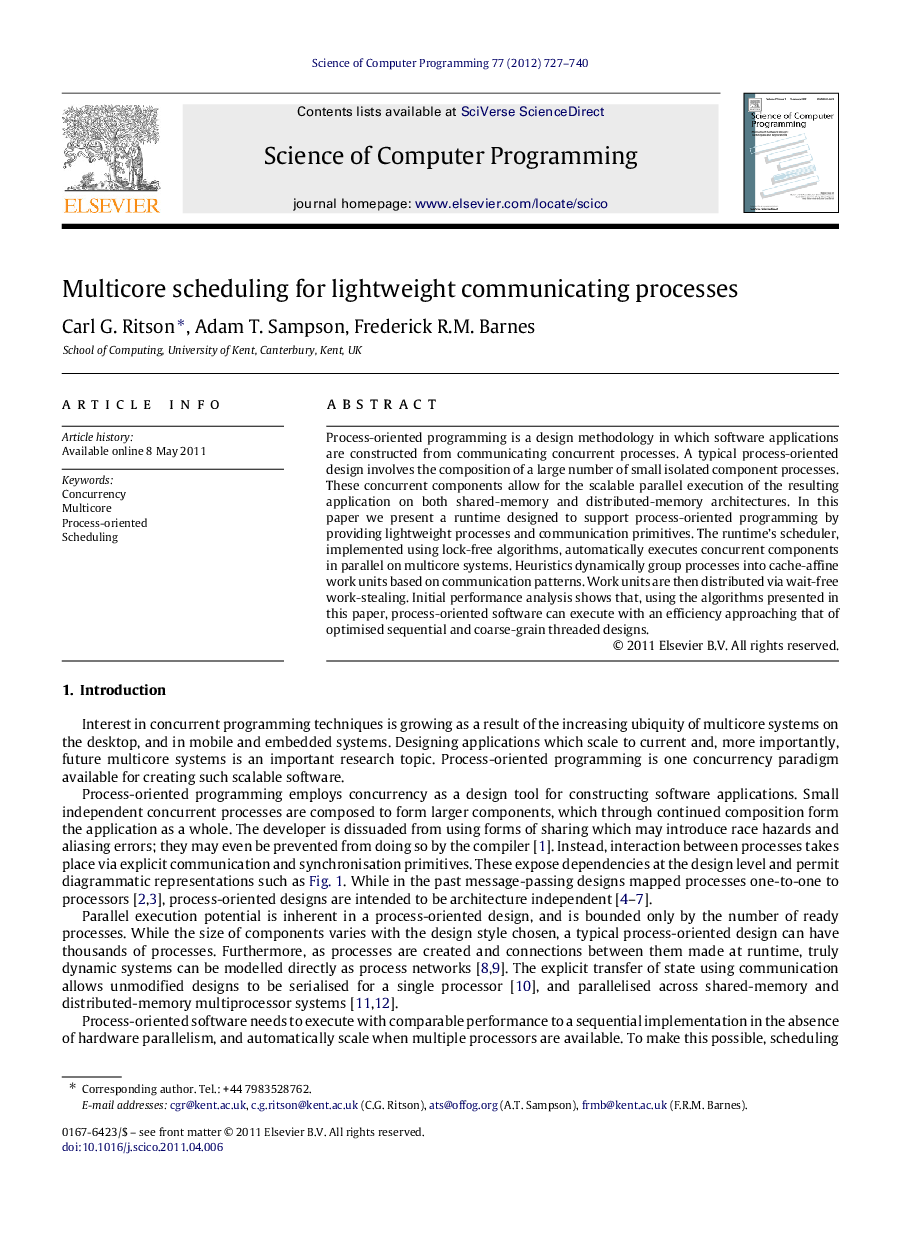| Article ID | Journal | Published Year | Pages | File Type |
|---|---|---|---|---|
| 435262 | Science of Computer Programming | 2012 | 14 Pages |
Process-oriented programming is a design methodology in which software applications are constructed from communicating concurrent processes. A typical process-oriented design involves the composition of a large number of small isolated component processes. These concurrent components allow for the scalable parallel execution of the resulting application on both shared-memory and distributed-memory architectures. In this paper we present a runtime designed to support process-oriented programming by providing lightweight processes and communication primitives. The runtime’s scheduler, implemented using lock-free algorithms, automatically executes concurrent components in parallel on multicore systems. Heuristics dynamically group processes into cache-affine work units based on communication patterns. Work units are then distributed via wait-free work-stealing. Initial performance analysis shows that, using the algorithms presented in this paper, process-oriented software can execute with an efficiency approaching that of optimised sequential and coarse-grain threaded designs.
► A wait-free work-stealing scheduler for lightweight concurrent processes. ► Scheduler exploits multicore systems and interprocess communication. ► Heuristics to optimise at runtime using interprocess communication patterns. ► Scheduler and occam-ππ used to implement a case study in agent-based modelling. ► Case study performance evaluated using concurrency features of other languages.
